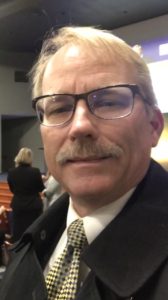Saul Alinsky was a leftist radical who employed communist tactics and ideas into the politcal world in the United States, and wrote books. Among them: Rules for Radicals and Reveille for Radicals. His use of slander, ridicule, intimidation, infiltration into his opposition, community organizing and confrontation through his method of tactics gained him notoriety for gaining power. He was famous for his ‘ends justify the means’ attitude.

Saul Alinsky was Chicago born of immigrant parents. After a college career in criminology he associated and was a traveler with gangsters and communists. He wrote political books that taught his adherents how to organize communist communities and wage war on traditional American civilization.
Alinsky studied criminology at the University of Chicago. It was there that he created friendly relationships with Chicago mobster Al Capone and his gang. Political commentator David Horowitz has written that Alinsky “came of age in the 1930s as a Communist fellow-traveler (as his biographer Sanford Horwitt tells us in Let Them Call Me Rebel).” Horowitz says that he was “broadly sympathetic” with the politics of his friend Herb March, who worked as an organizer for the Young Communist League.”
Alinsky college classmate and Chicago alderman Leon Despres, who was a Communist Party member, said, “I don’t think he [Alinsky] ever remotely thought of joining the Communist Party, [but] emotionally he aligned very strongly with it.” Thus, Alinsky embraced the principles of communism, but never formally joined the Communist Party.
Discover The Networks, a project of the David Horowitz Freedom Center, says that “Late in 2010, Communist Party USA member C.J. Atkins called for his comrades to drop their “communist” label, so that they could work more effectively inside the Democratic Party. Soon thereafter, Joe Sims, co-editor of the CPUSA publication People’s World, acknowledged not only that collaboration with the Democrats “will be an area of engagement for those wanting to make a difference,” but also that communists might someday be able to “capture” the Democratic Party entirely. Sims warned, however, against dissolving the CPUSA entirely into the Democratic Party. Rather, he advised his organization to remain a separate entity, working both inside and outside the Democratic Party as circumstances required.
The Freedom Outpost states that “In January 2015, Communist Party USA National Committee chairman John Bachtell published an essay in People’s World stating that American communists were eager to work with the Democratic Party in order to advance their goals.”
“During Bush’s first term, Democratic Party politicians demanded that he enact Campaign Finance Reform, ostensibly to reduce the influence of wealthy contributors to political candidates. But the Democrats included in the legislation a tiny provision for so-called “527” organizations that would allow ultra-wealthy radicals such as their ally George Soros to contribute unlimited sums of money to the parties and candidates of their choice. The leaders of one of these “Shadow Party” organizations, MoveOn.org, jointly said of the Democratic Party following the 2004 election (in which Democrat John Kerry lost by three million votes to George W. Bush): “Now it’s our Party: we bought it, we own it….”
Alinsky died in 1972, but his writings influence many in political control of this country today. Two recent Democrat politicians hailed him: Hillary Rodham Clinton, who did her college thesis on Alinsky’s writings, and Barack Hussein Obama, who wrote about him in his books.
Finally, in his book, Rules for Radicals, Alinsky wrote at the end of his personal acknowledgements: “Lest we forget at least an over-the-shoulder acknowledgment to the very first radical: from all our legends, mythology, and history (and who is to know where mythology leaves off and history begins or which is which), the first radical known to man who rebelled against the establishment and did it so effectively that he at least won his own kingdom – Lucifer.”
Michael Reed is editor of The Standard newspaper.




 RSS - Posts
RSS - Posts